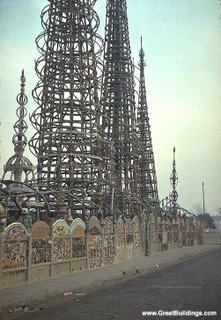
Little Walter, My Babe.
Shirley and Lee, Feel So Good.
There is some music that is so fine, so perfect, that writing about it seems utterly pointless. But here I go regardless, though you're better off just playing these tracks loudly.
Little Walter was born Marion Walter Jacobs in 1930 in Marksville, Louisiana, and died at age 38 after getting bludgeoned during a fight. Of all the postwar Chicago blues masters, he might have been the most brilliant.
Pete Welding: "From the very start Walter was a modernist, and a musical innovator who had little overt respect for any tradition save that of his own making. In vain does one search his recordings for any evidence of traditional influences or for traces, however fugitive, of his sources or borrowings. They are simply not there. What is there, on the other hand is pure Walter. If there had been any appreciable influences on the development of his music, his own burning genius had long since blurred, absorbed and transformed them by the time he had begun to record..."
"My Babe" was written by the great, prolific blues composer Willie Dixon--it's one of the most infectious things ever recorded. Walter sings and plays the harmonica as if it were a tenor saxophone, Dixon is on bass, Robert Lockwood and Leonard Caston provide the unstoppable guitar lines, Fred Below is on drums. Recorded January 25, 1955, and released as Checker 811 (and after getting an overdub, as Checker 955). Find on His Best.
Shirley and Lee's "Feel So Good" is 2:50 of joy compressed onto disc. Shirley Goodman and Leonard Lee, whose voices seemed designed to test a loudspeaker's woofer and tweeter, came out of New Orleans in the early '50s and were billed as "The Sweethearts of the Blues."
The two, who were born only days and streets apart from each other in 1936, hardly ever sang in harmony, and the wild contrast of their vocals was a major influence on Jamaican ska recordings of the late '50s and early '60s (Derrick and Patsy's "Housewives Choice", for example, is Shirley and Lee on vacation in Kingston).
While never a couple, the duo (who were in their mid-teens when they began recording) created a mythology on disc of Shirley and Lee, the ever-quarreling, ever-reuniting lovers. Each single they waxed for Aladdin Records advanced the story: "I'm Gone", "Shirley Come Back to Me", "Shirley's Back", "The Proposal," "Lee Goofed."
The schtick began growing old by 1955, however, so Aladdin's head Leo Messner had the pair record some groovier R&B. "Feel So Good", while not a major hit, is my favorite recording of theirs--is it Lee's goofy, ecstatic vocal? The swinging doo-wop backup vocals (by the Spiders)? The basic meat-and-potatoes sax solo? The whole thing just works for me.
"Let the Good Times Roll," recorded the next year, was the hit that made them immortal, but not much else followed and the duo parted by the early '60s (though Shirley went on to record the disco masterpiece "Shame Shame Shame" in 1975 and provided backing vocals on Exile on Main Street). Lee died in 1976, and Shirley passed last year. "Feel So Good," issued as Aladdin 3289, can be found on Let the Good Times Roll.
Top photo: Sabato (Simon) Rodia completes the Watts Towers in 1955, which he began building in the early 1920s, and moves out of town. Los Angeles intends to knock down the structures, regarded by many in the city government as a horrific eyesore; today, the towers are part of the California Parks System.
Sylvia Hart Wright: "One man's artistic fantasy is here given substance: fanciful spires pieced together over a period of thirty-three years from steel reinforcing rods and wire mesh, colorfully decorated with seashells and fragments of broken dishes and bottles."
Simon Rodia: "I had in mind to do something big and I did it."
No comments:
Post a Comment